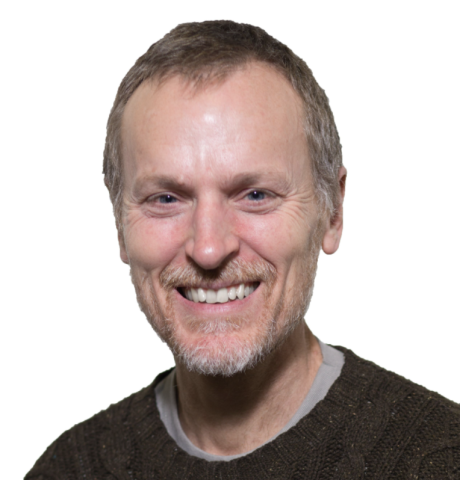Three years ago, James Van Orman was finishing up his term as chair of the Earth, Environmental and Planetary Sciences Department when he attended a presentation on the Provost Scholars program. The presentation was given by professor of cognitive development and then director of the Provost Scholars program Lee Thompson, who shared that the program was in need of more mentors. Van Orman, whose own two children were in high school at the time, didn’t think twice. He signed on as a Provost Scholars mentor and, today, says it has been one of the most impactful experiences of his career. Read more about Van Orman.
What was it about the Provost Scholars presentation you heard that resonated with you?
I had recently been doing some work at the Shaker Heights Schools, where my children were attending school at the time, and there were issues with inequities at the district that were coming to light. I was also working on starting a running race at [East Cleveland’s] Forest Hill Park to raise money for the upkeep of the park because it doesn’t have any dedicated funds. So there were those two things in the background. When I learned about the program, it all came together and I just thought to myself, ‘This is how I want to use my time.’
Tell us about your first meeting with your mentee.
When I started the program, my mentee was just beginning ninth grade. I was a little nervous initially and I started to wonder whether I was going to be any good at being a mentor. And then when my mentee and I first met, I could tell that she was a little skeptical about me. So for the next meeting, I asked one of my students for some ideas and they gave me a few apps that I could try. On our second meeting, we went to the library and we started playing on an app called Geoguessr, where you’re dropped somewhere in the world and you have to figure out where you are. My mentee was amazingly good at the game. She paid attention to things that I wouldn’t have noticed and could recognize where we were in the world. It was really cool the way we connected over the app. After that, I knew that things would be just fine. Sometimes now I ask her to remember our first meeting and we just laugh about it.
How has the relationship with your mentee impacted you?
It’s given me a lot more perspective and, at the same time, a different perspective. A lot of the things we talk about together have just expanded my world. She’s a junior now, so we've also been spending a lot of time over the last year going through the process of looking at colleges. My children are just a little bit older than my mentee, so this process with her is a bit of a continuation of that but it’s also completely different because we’re looking at different schools, including HBCUs and different programs.
Has being a Provost Scholar mentor changed the way that you approach teaching your students at Case Western Reserve?
I think so. I think it's given me a better understanding of where different students might be coming from. Not everybody has the background or the same level of support at home. We have so many really talented students here and we also have students who haven’t had the same opportunities or have had to overcome significant challenges. I think this experience has made me think more about what students can be dealing with.
What would you say to colleagues to encourage them to consider mentoring a Provost Scholar?
I’ve personally found it to be fulfilling. And I also think that engaging with [our neighbors in] East Cleveland is an important thing for the university to do. We have a lot of talent here and we can share that with students by bringing them to campus. Many of the Provost Scholars live nearby but either haven’t spent much time here or just haven’t felt welcomed. This is a meaningful way to change that.
In 2024, your mentee will graduate from high school. How are you feeling about that?
We won’t be seeing each other every week and I don’t know where she’s going to go to college. I know I’ll miss her…and I also know that we’ll definitely stay in touch.


